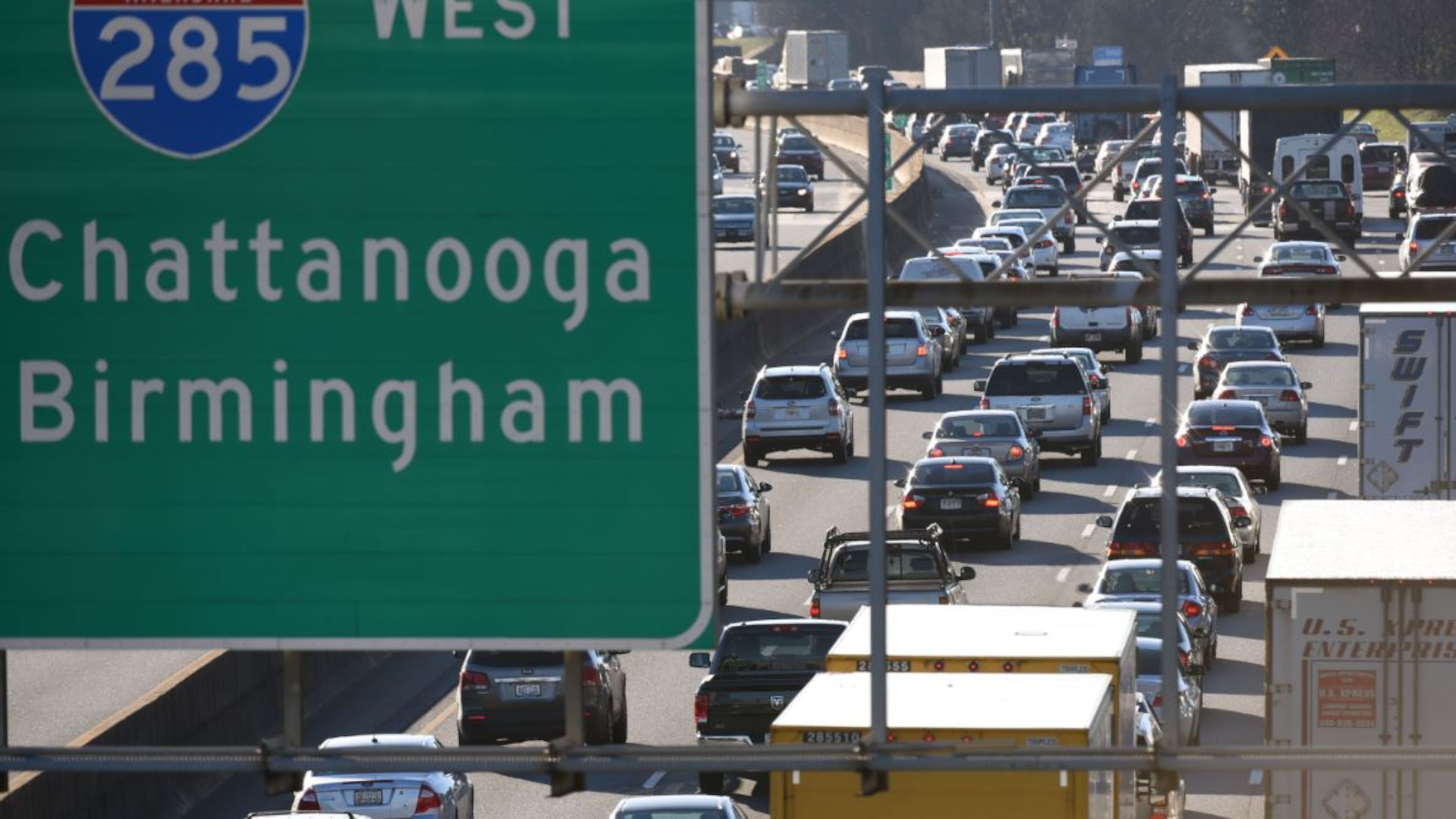New timetable for metro Atlanta toll lanes: more details

Last week the Georgia Department of Transportation announced a revised timeline for major road construction projects across the state. The net result was to delay some key projects in metro Atlanta and speed up projects elsewhere.
The announcement prompted some confusion, speculation and at least one call for a more detailed explanation. On Wednesday, GDOT officials gave their most detailed explanation yet at a meeting of the State Transportation Board. Here's a look at what they said, project by project:
Ga. 400 express lanes: The lanes were originally scheduled to be completed in 2024, but GDOT has pushed that back to 2027. Tim Matthews, the manager of GDOT's Major Mobility Investment Program, said the agency has decided to seek a contractor who will design, build, finance and maintain the new toll lanes for 30 to 35 years. The company would not operate the lanes or set the tolls.
Though other states have used this contracting method, it’s new to GDOT. The complexity will require some extra time to get it right, according to Joe Carpenter, director of the agency’s public-private partnerships.
Another factor: GDOT recently agreed to rebuild the Ga. 400 interchange at Holcomb Bridge Road as part of the project. That also affected the timeline, Carpenter said.
I-285 "top end" express lanes: Toll lanes from Paces Ferry Road to Henderson Road – roughly I-75 to I-85 on the top end of the Perimeter – were originally scheduled to be completed in 2028. GDOT announced it is breaking the project into two segments: an eastern segment that would be completed in 2029 and a western segment that would be finished in 2032.
In addition, GDOT will proceed with several smaller projects along the corridor that were originally set to be included in the larger express lanes project. Among them: collector-distributor lanes between Chamblee Dunwoody Road and Ashford Dunwoody Road and interchange improvements at Peachtree Industrial Boulevard.
GDOT Chief Engineer Meg Pirkle told board members that construction industry feedback drove the decision to break the project into smaller pieces. The entire top end project was estimated to cost $4.6 billion, and few projects nationwide are as big. Pirkle said breaking it up would encourage more companies to bid on the work.
“We hear from people who bid on those projects,” she told the board. “What they’re saying is, they’re too big.
Breaking the project up reduces the financial risk to GDOT and potential bidders, and “hopefully we’ll see a better price at the end of the day,” she said.
Pirkle said proceeding with the smaller improvements before building the express lanes will simplify construction and reduce congestion for motorists in the meantime.
I-285 east and west express lanes: Lanes from I-85 to I-20 on the east side were originally set to open in
2025, but have been pushed back to 2028. West side lanes from I-75 to I-20 were pushed back from 2026 to 2032.
While the express lanes on the Perimeter are being built as separate projects, Pirkle said they will become part of a connected system, so it makes sense "to think about which one you build first." She said delaying the east and west lanes will better match up with the construction of the top end lanes.
I-85 widening: This is one of two projects that will see their opening moved up, not back. The widening of I-85 to Ga. 129 northeast of Atlanta will be finished by 2023, instead of 2028.
Pirkle said that’s because Georgia was fortunate to receive some extra federal money that went unspent by other states. She said the money is “use it or lose it” – Georgia must use the money on a project by 2020.
The first phase of the I-85 project – to Ga. 53 – will be finished next year. That means the final phase will be ready to go by the federal deadline. And Pirkle said the project is needed.
“It’s a heavy freight corridor,” she said. “It’s not just busy on UGA football weekends. It’s busy all the time.”
I-75 truck lanes: GDOT plan to build 40 miles of trucks-only lanes between Macon and McDonough. They will open in 2028 instead of 2029, as originally scheduled.
Pirkle said construction will begin about the time the I-75 interchange at I-16 in Macon is completed. She said the move “doesn’t change the fact that 285 needs to be split and staggered in logical progression.”
At Wednesday’s meeting, the engineer acknowledged the changes have gained a lot of attention in metro Atlanta.
“One thing we’ve learned over the last week is that metro Atlanta really likes express lanes,” she said. “We are moving forward.
“We also have to listen to the feedback that we get from the people who will be building this for us,” Pirkle added. “We need to make sure we don’t stick to a schedule that is not going to get the best use of Georgia money.”

